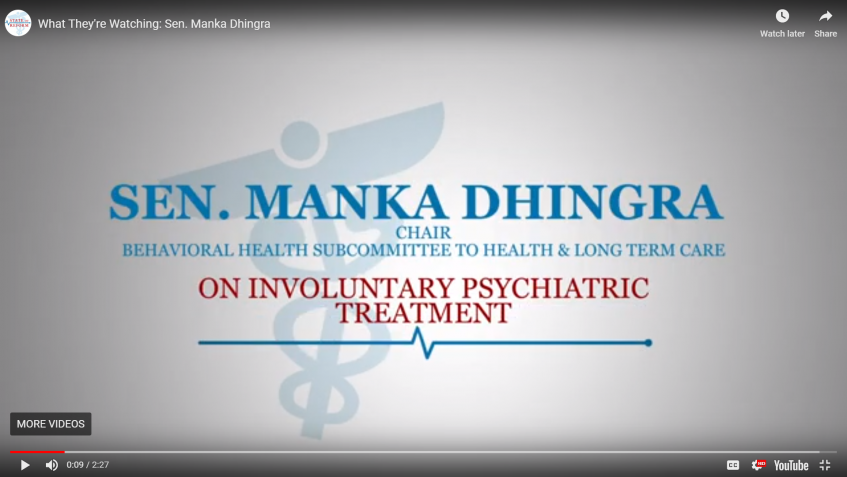From State of Reform
“I’m very excited about my civil commitment bill – it’s taking a look at our Involuntary Treatment Act. It’s something that we haven’t looked at comprehensively for decades. And so, this really takes a look at the entire makeup of the statute, cleans out language that is no longer relevant, and really makes sure that we’re addressing the problems so that the people who need this high level of care can actually get access to it, and the people who don’t meet that criteria aren’t the ones that are scooped up in it. I’m actually very excited about that bill. It does make some dramatic changes in separating out the adult section with the juvenile section — really making sure that we’re taking a look at medicine and science and what makes sense in terms of the way we’re serving our individuals who are in the hospital for civil commitment.
Right now, we actually have people that are boarded. That means they’re strapped on a gurney without any rooms waiting for hospital beds because they are so severely decompensated that they may be presenting as a danger to self, or others, or gravely disabled. So, we’re really taking a look at what is the definition of gravely disabled?…
Right now, you have a hearing at the 3-day mark. And what we’ve been finding out is that people continue that hearing multiple times, which makes sense from a science point of view because it takes 3 to 5 days for people to stabilize. If you want to plan for aftercare, if you really want to be able to discharge them in a thoughtful way, we’re actually expanding that 3 days to 5 days so that you do get a right to a hearing, but you have that at the 5-day mark and not the 3-day mark. And that again is about making sure we’re putting the science first, the medical needs first, and really understanding that a lot of people need the 3 to 5 days to even detoxify. A lot of individuals who show up to our hospitals have a lot of different issues going on and substance use disorder is one of them. And, frankly, the 3 days is simply not enough for doctors to do a full assessment to really understand what the whole picture is, or for anyone to do discharge planning. So, the hope really is that the 5 days will give people that additional time to really be patient-focused, patient-centered and come up with discharge planning.”
By Emily Boerger
Watch the video here.




